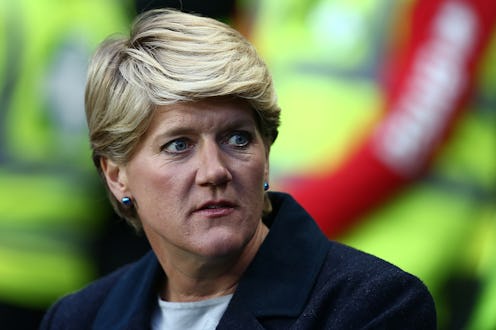News
British Women “Politely Suggest” The BBC Fix Its Pay Gap ASAP

When the BBC released its annual report last week, the British media organization recognized it had a problem: Its male talent earns noticeably more than its female stars. The BBC committed to closing its gender pay gap by 2020, but on Sunday, the BBC's women addressed the gender pay gap in an open letter to their leadership, calling for quicker action than the BBC has promised.
Compared to many women and men, we are very well compensated and fortunate. However, this is an age of equality and the BBC is an organisation that prides itself on its values. You have said that you will "sort" the gender pay gap by 2020, but the BBC has known about the pay disparity for years. We all want to go on the record to call upon you to act now.
The open letter, published Saturday night by The Telegraph, was addressed to BBC Director-General Tony Hall. The women offered to work with Hall to find a solution. "We would be willing to meet you to discuss ways in which you can correct this disparity so that future generations of women do not face this kind of discrimination," the letter read. In true British fashion, the BBC's Clare Balding tweeted Sunday that she and her colleagues were "politely" suggesting a change.
Balding joined more than 40 other women in signing the open letter. Among the signatories was Alex Jones, the network's second-highest female earner. As a host of The One Show, Jones reportedly earns between £400,000 and £450,000 (roughly $520,000 t0 $585,000). Still, two-thirds of the BBC stars earning more than £150,000 are male, according to the BBC. Additionally, Jones' salary pales in comparison to the network's second-highest-paid male presenter. Graham Norton, who hosts an eponymous show, reportedly makes between £850,000 and £899,999 (roughly $1.1 million and $1.16 million).
In response to the gender pay gap, Hall said last week, "We've made progress, but we recognize there is more to do and we are pushing further and faster than any other broadcaster." He also noted that the BBC "will be working carefully on our relationship with our talent."
Beyond the women who signed the open letter, the BBC has also faced pressure from the United Kingdom's top woman in government. Prime Minister Theresa May addressed the pay issue in a radio interview, saying, "We've seen the way the BBC is paying women less for doing the same job... I want women to be paid equally."
The BBC women's open letter is an important reminder that the gender pay gap remains a worldwide concern. It's also a reminder of the discrimination that women can face in the workplace, even beyond salaries. Who could forget the year that Australian TV host Karl Stefanovic wore the same suit every day on air to highlight the criticism that his female co-stars faced over their outfit choices? In the words of the BBC's Hall, there is still "more to do."